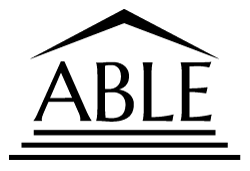
On January 31, 2017, Minnesota announced the launch of new savings accounts that could lift hundreds of people with disabilities out of poverty by allowing them to accumulate savings without jeopardizing their public health insurance coverage and other government benefits.
Nearly a decade in the making, the new accounts are considered a breakthrough for many of the roughly 600,000 Minnesotans with disabilities, who often are forced to impoverish themselves to qualify for public services. For the first time, people with disabilities and their families can set aside up to $14,000 a year for certain expenses without getting cut off from Social Security, Medicaid and other government programs.
Minnesota is among the first states in the nation to offer the accounts, known as ABLE accounts, which are considered among the broadest new benefits for the disability community in a quarter-century. Modeled after 529 college savings accounts, ABLE accounts allow money to grow tax-free to pay for a broad array of items — from housing to assistive technology — that can help people with disabilities live more independently in the community. Individuals can keep their Medical Assistance regardless of their account balance.
State and federal rules have long trapped many individuals with disabilities in poverty, particularly if they need the broader array of services covered by public health insurance. Since 1983, for instance, most of those trying to qualify for Minnesota’s version of Medicaid, known as Medical Assistance, must spend down their income to 80 percent of the poverty level and hold no more than $3,000 in assets. And Supplemental Security Income, a federal benefit also known as SSI, has an asset cap of just $2,000.
Since former President Barack Obama signed the ABLE Act into law in 2014, 16 states have opened the special accounts to the public.
Besides helping to preserve eligibility for public programs, the new ABLE accounts offer tax benefits that resemble those of a college savings plan or an IRA. Interest and investment profits are not taxed as long as the money is used to cover qualified disability-related expenses. Parents of eligible minors may open accounts for their children.
For more information, visit https://savewithable.com/mn/home.html
